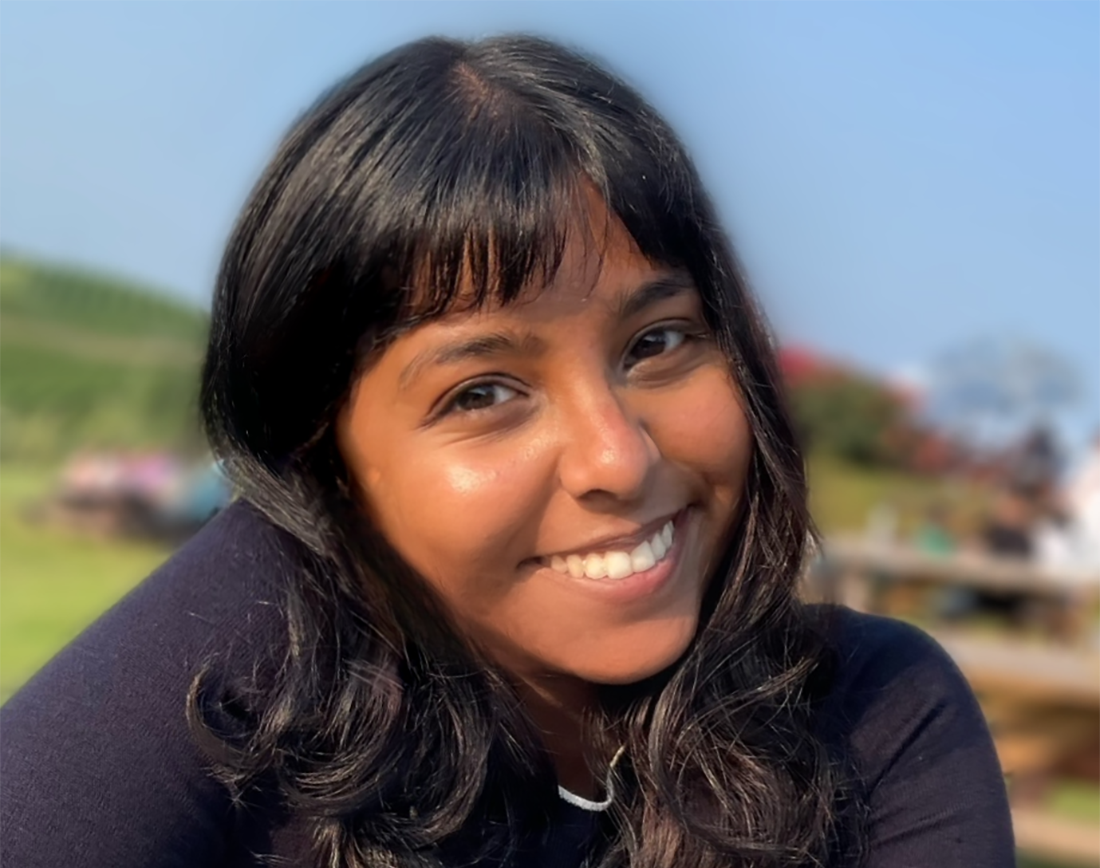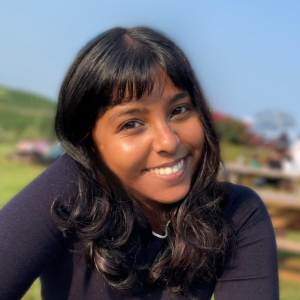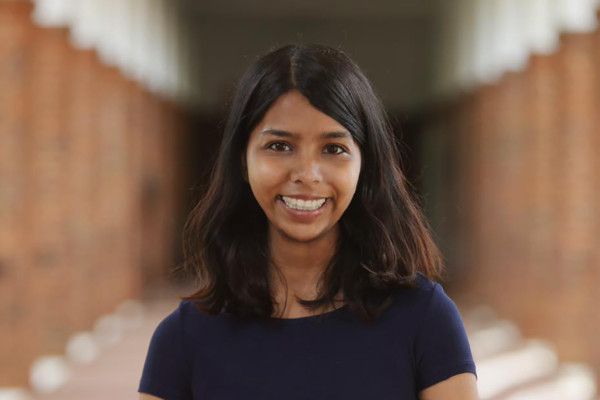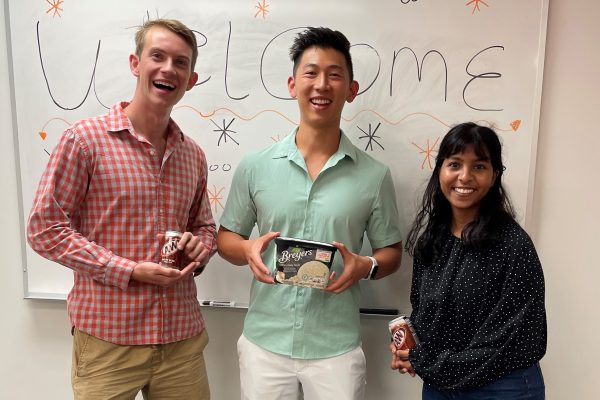Ph.D. Student Profile: Navya Annapareddy

Navya Annapareddy
Hometown:
Haymarket, VA
Education:
B.S in Systems Engineering 2021, University of Virginia
M.S in Data Science 2022, University of Virginia
Ph.D in Data Science Student, University of Virginia
Q: When and how did you become interested in Data Science?
I was active in robotics in high school and ended up studying Systems Engineering with a focus on embedded systems as an undergraduate. I found I really enjoyed being in an interdisciplinary field and the flexibility it allowed me to combine technical methods with any field or problem, robotics included.
My senior capstone at UVA involved computer vision models for autonomous cars and found it exciting how fast paced the progress in the field was. From there, I decided to continue my machine learning research through the School of Data Science so I could get the broadest exposure to different types of data and data problems (and have a dedicated space to explore them).
Q: Choosing a doctoral program is a big decision. Why did you choose UVA's Ph.D. in Data Science?
A Ph.D in Data Science is a rare degree offering. UVA’s program is one of the few in the world, not only at the doctoral program but also to be housed in its own designated school. I liked the independence and support I knew the degree would offer having its own dedicated faculty and funding sources and it was a great indication that UVA was fully invested in making a strong, impactful student experience.
Q: What is your research area of interest? Do you know what your dissertation topic will be?
My research areas are in computer vision, healthcare, and differential geometry. My dissertation will revolve around applying motion manifolds and new visualization techniques for pose estimation and human movement patterns.
Q: What has been your favorite class so far and why?
I really enjoyed Numerical Optimization with Dr. Baek. One of the most important aspects of the class was capturing how the process of optimization is continuous, iterative, and essentially unfinished. The methods we learned are continually being modified and combined. The key to incorporating new developments lies in understanding fundamental numerical analysis and approximation algorithms.
Q: What advice do you have for someone interested in pursuing a Ph.D. in data science?
I’d say to not wait to get your feet wet in research, even if the immediate opportunities aren’t a field or space directly related to your end goal. I did a good amount of my research before data science in biology wet labs. Skills like technical writing and lit review are consistent throughout fields. You also never know where field specific perspectives might pop up in future work!
Q: What is a fun fact about yourself?
I’m certified as an EMT and also teach first aid classes. I also really love film cameras and polaroids, especially Fujis.


